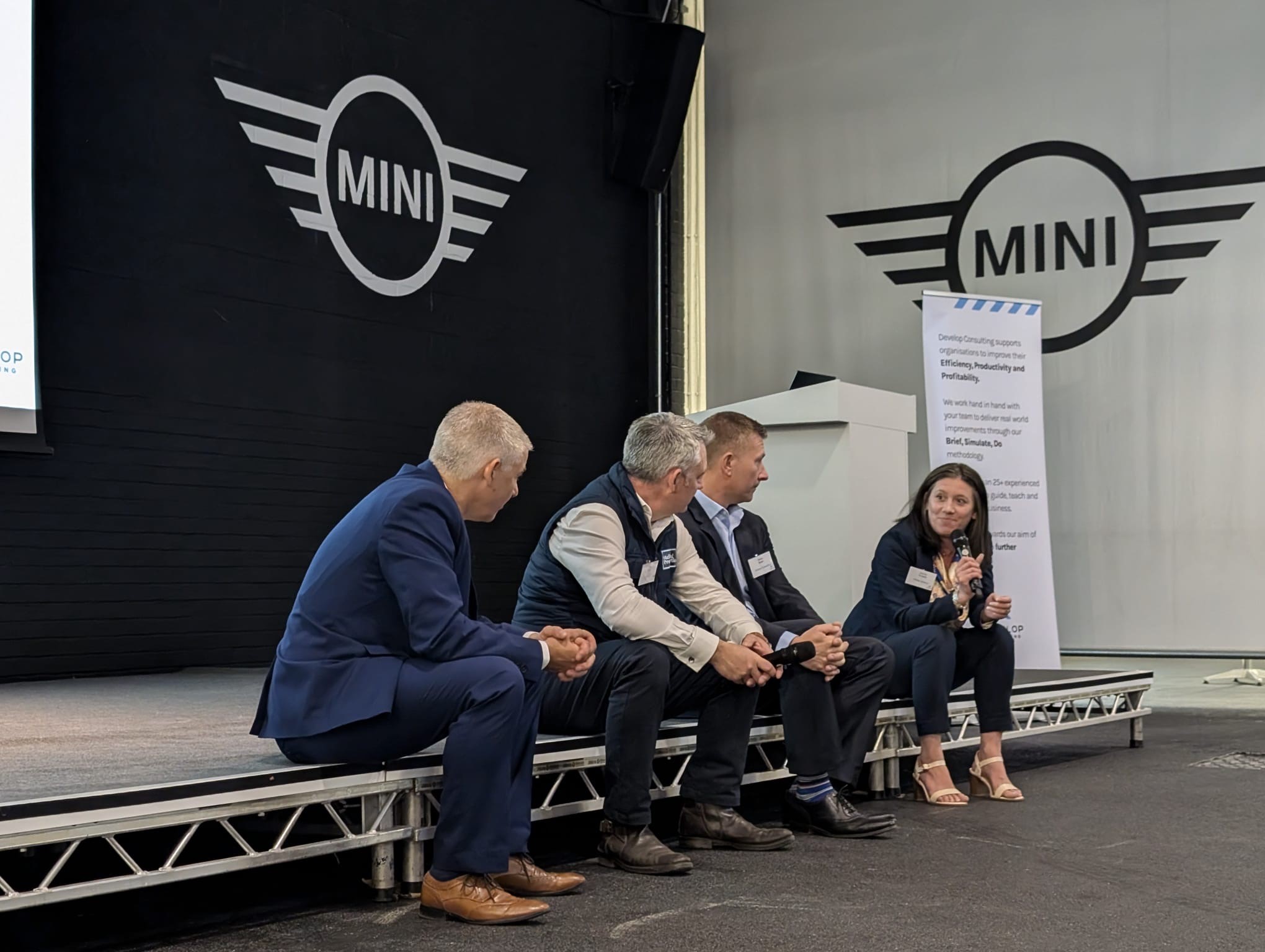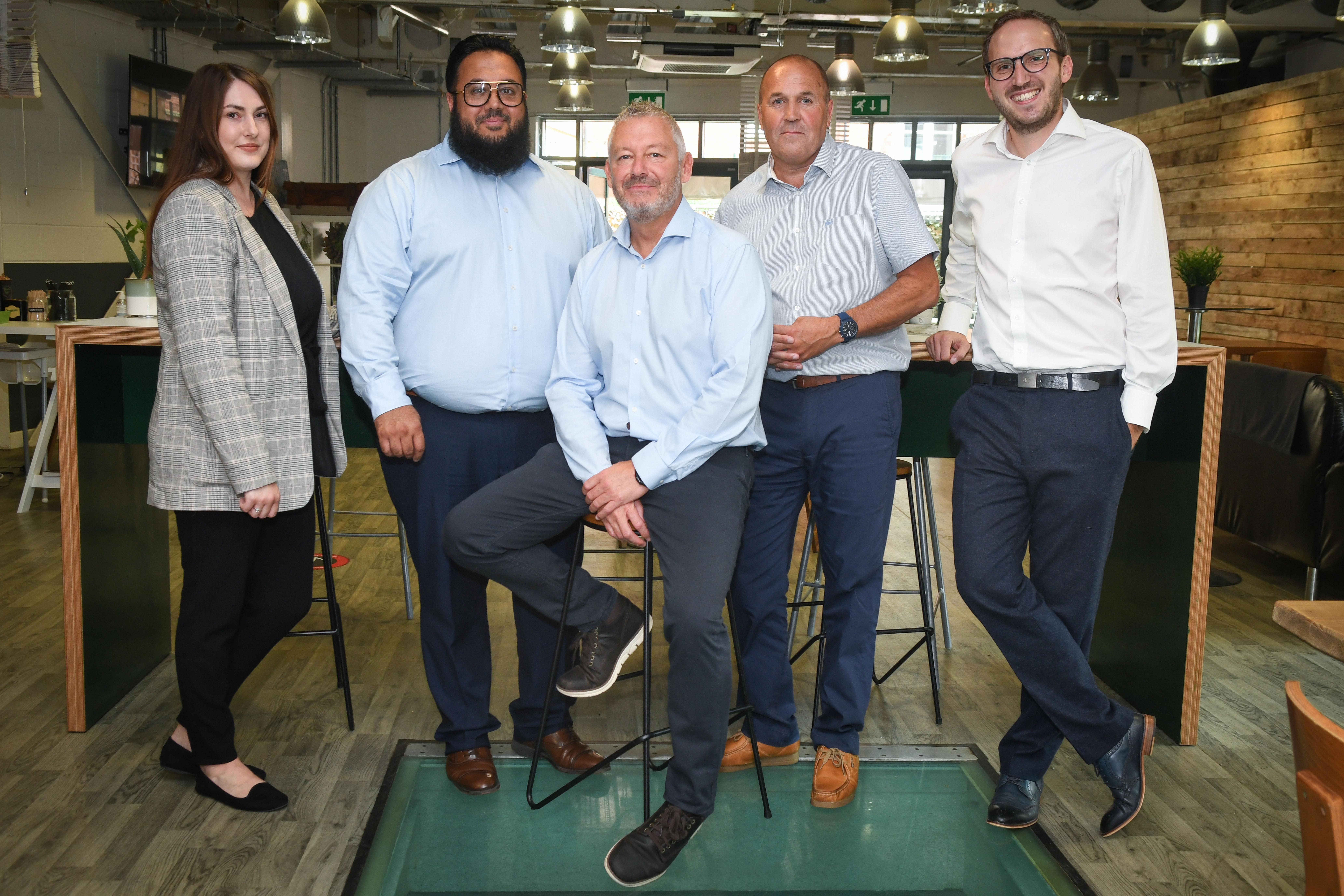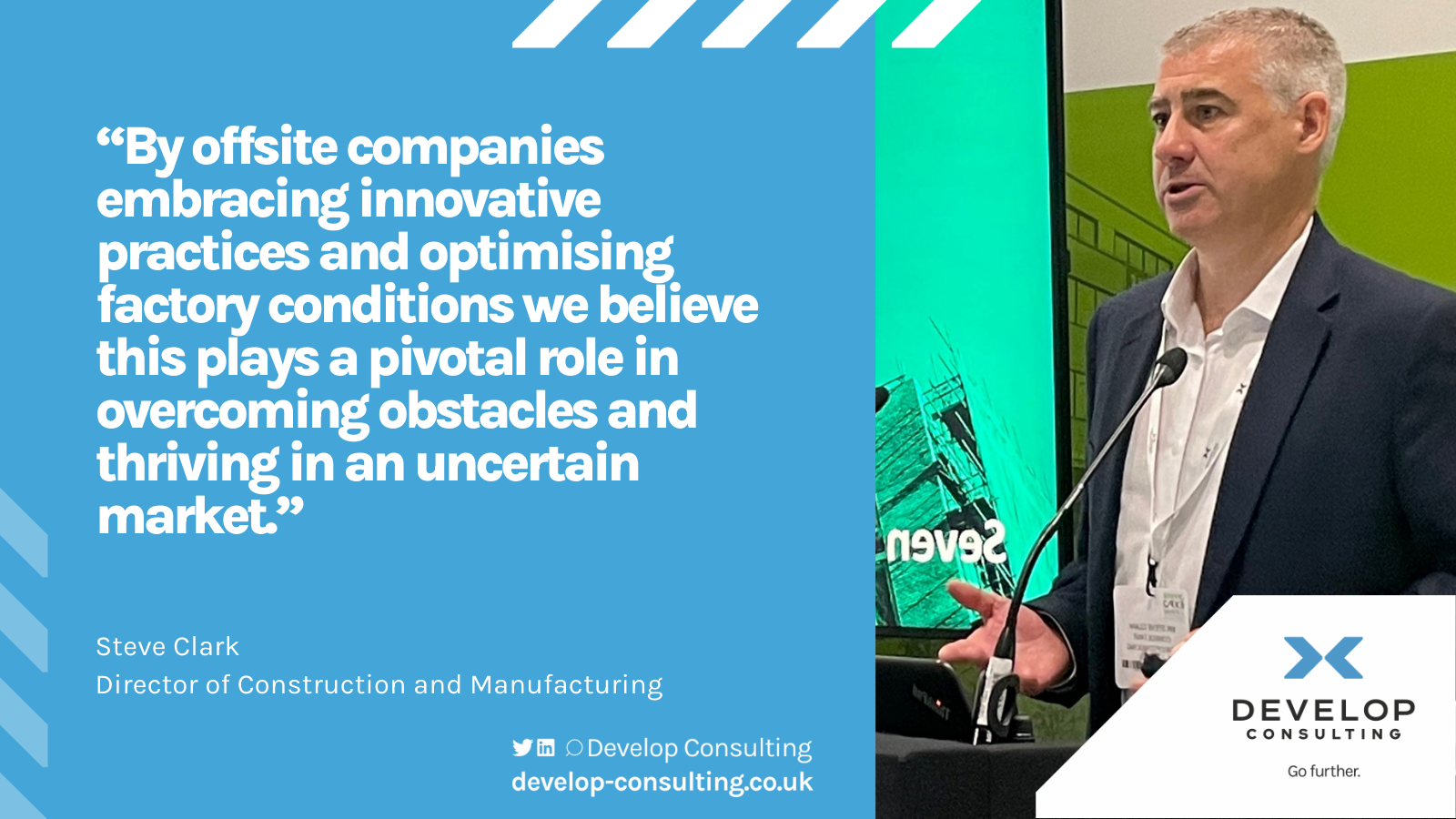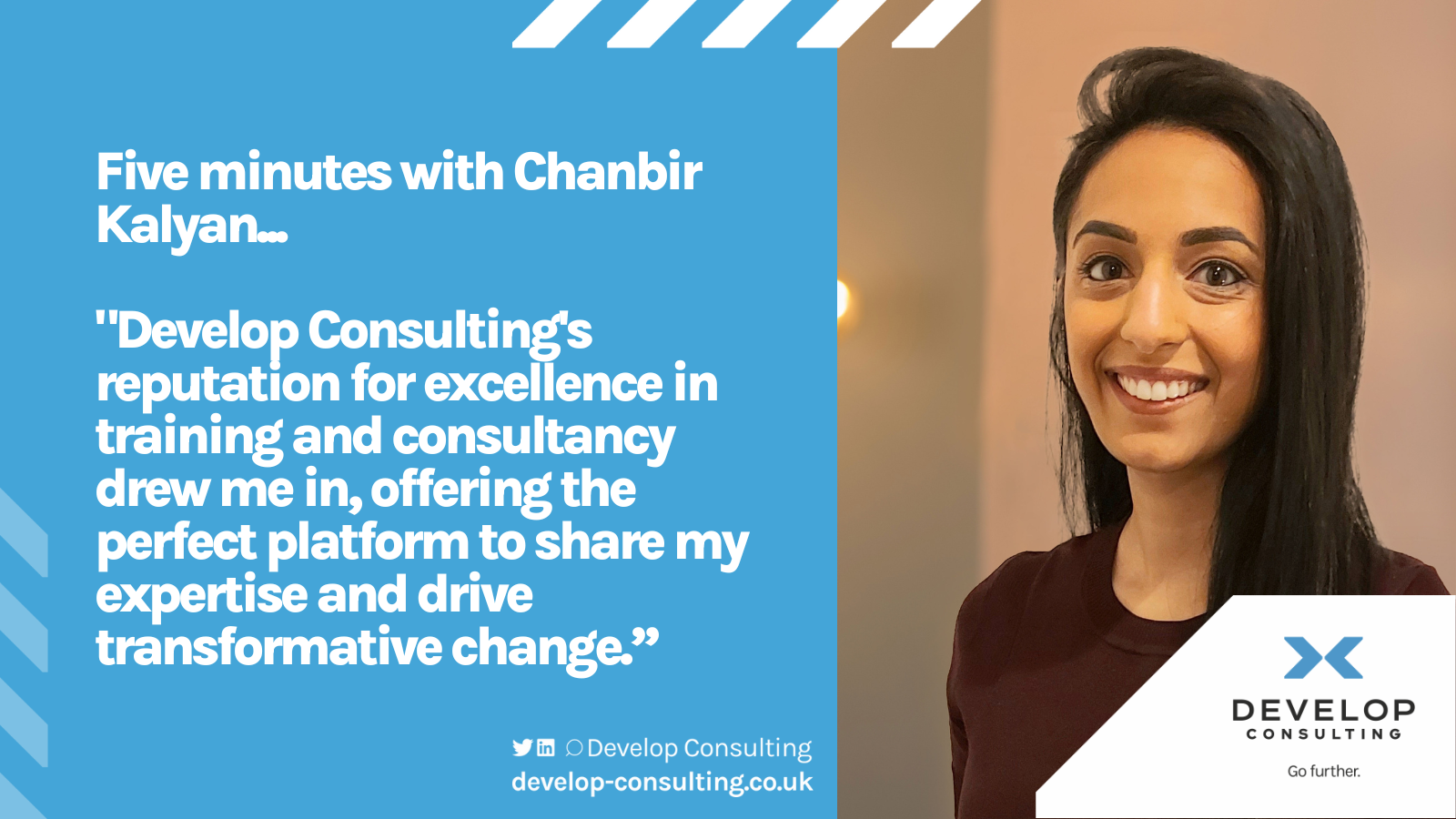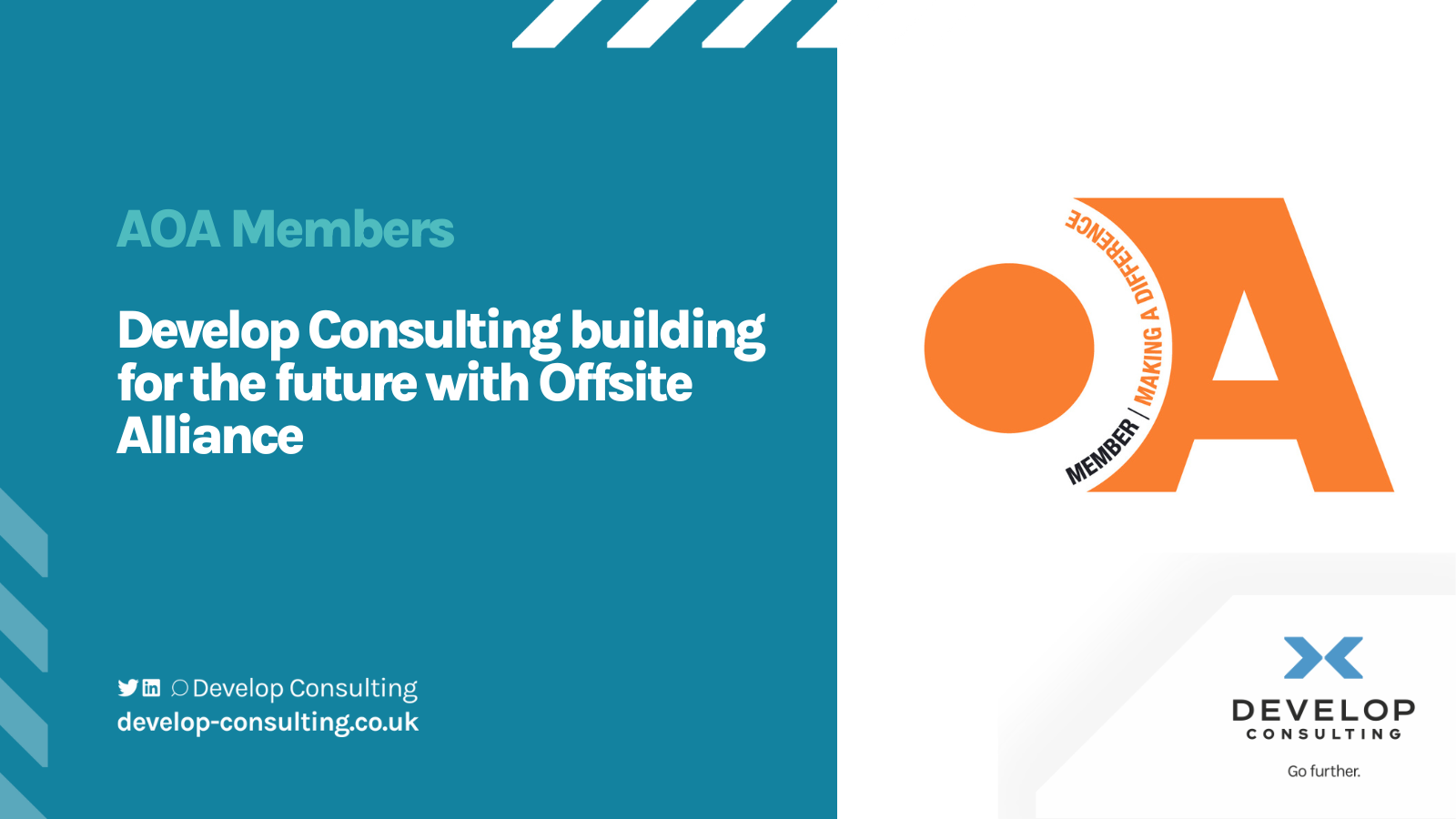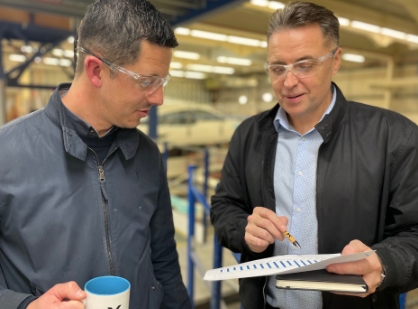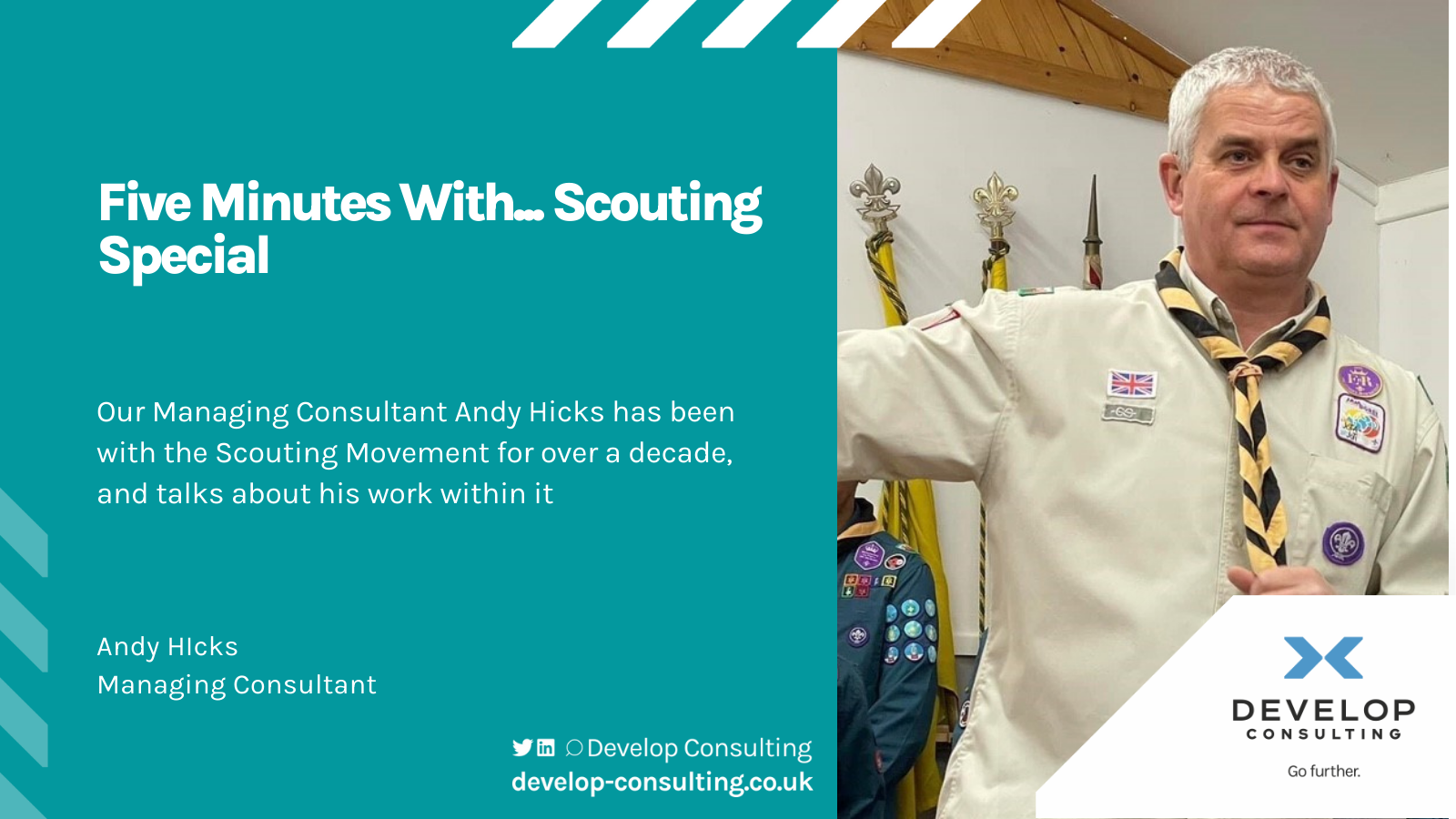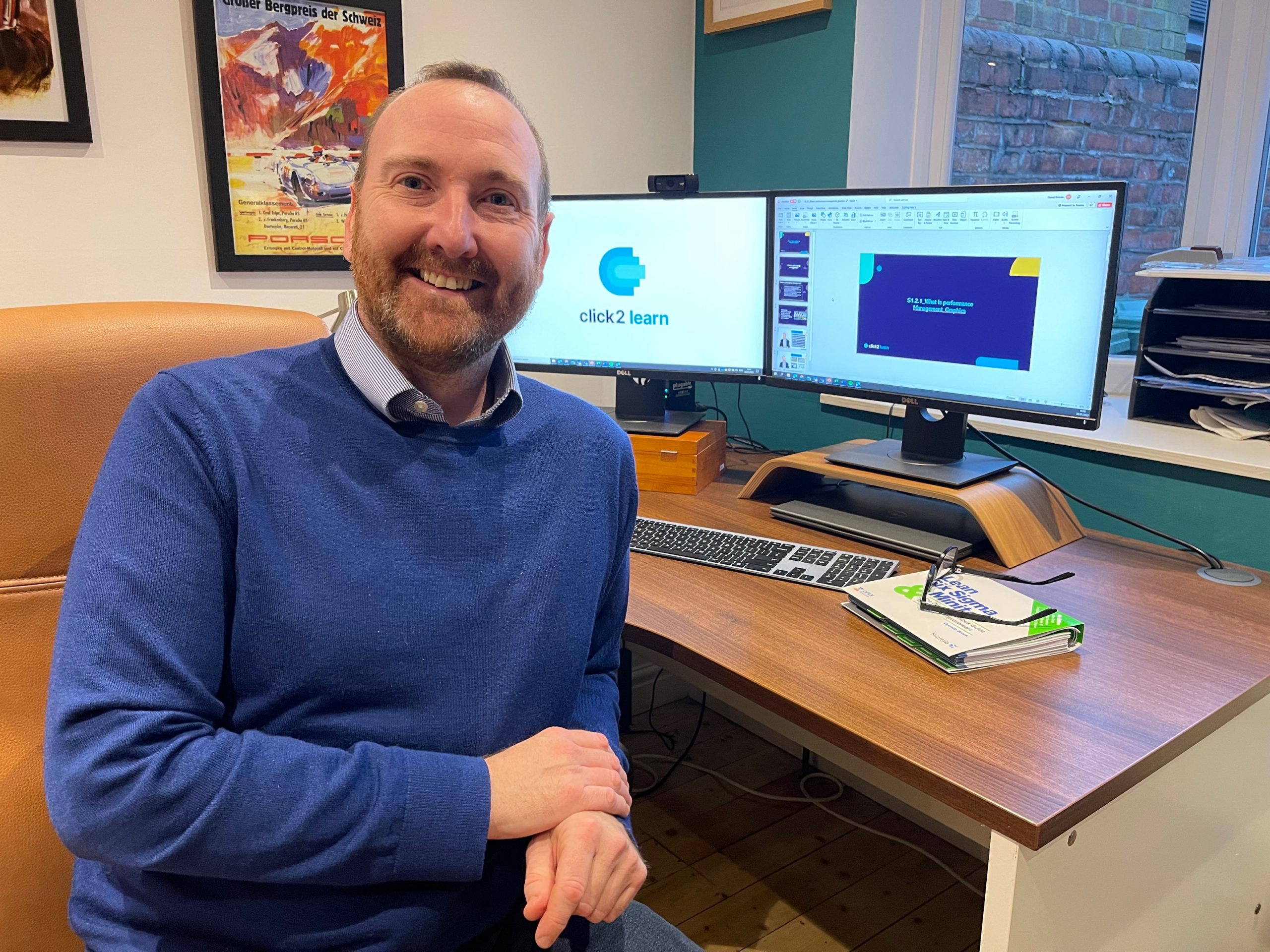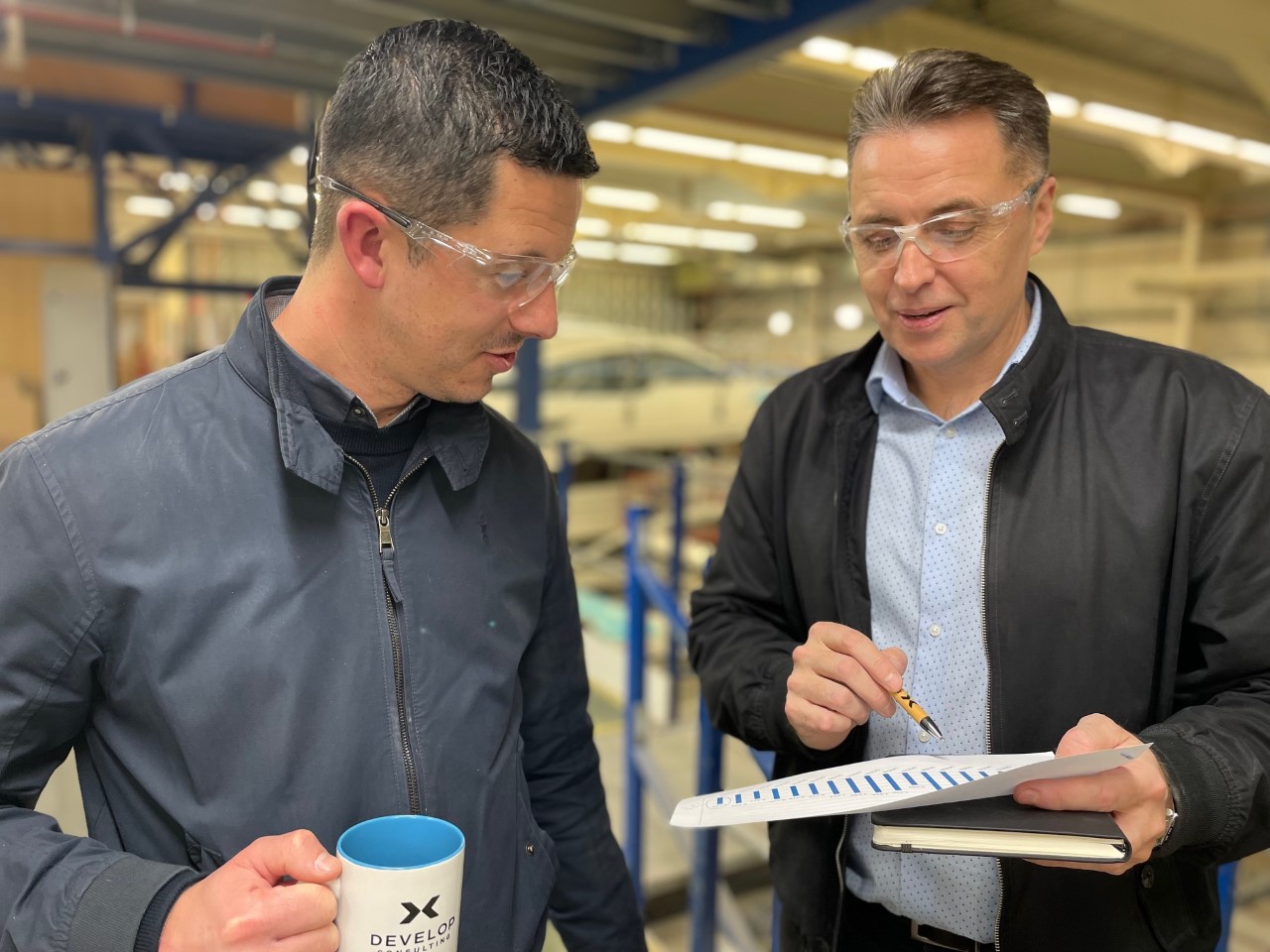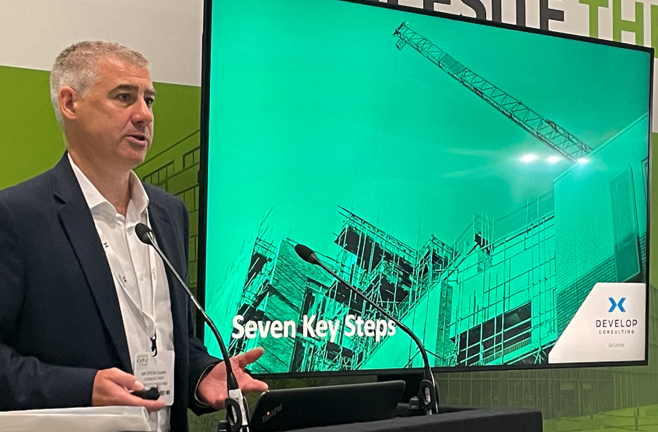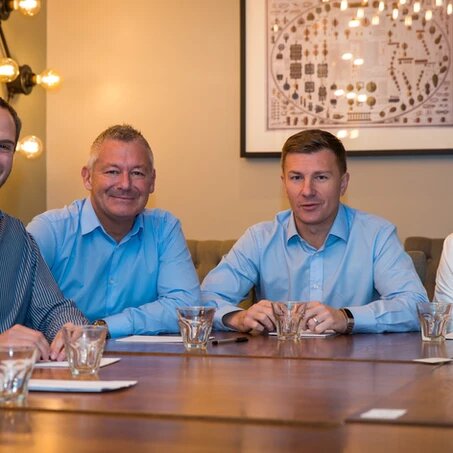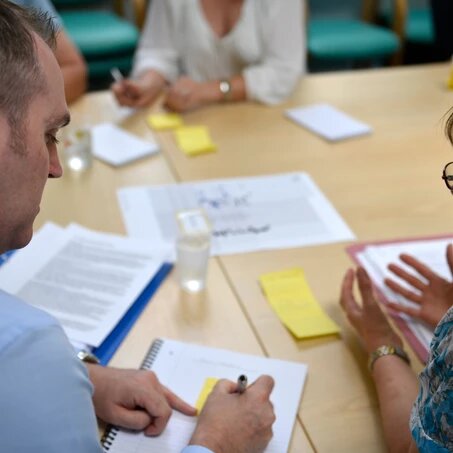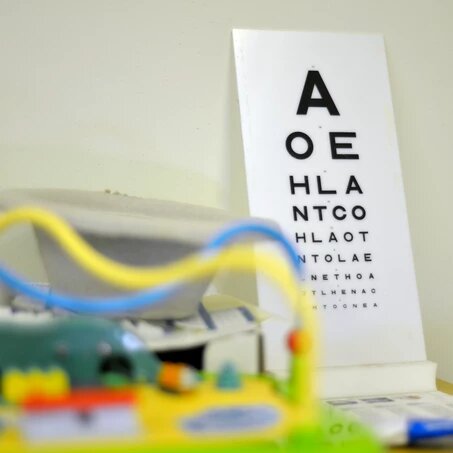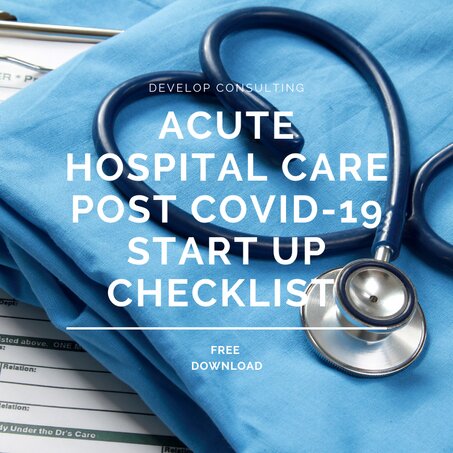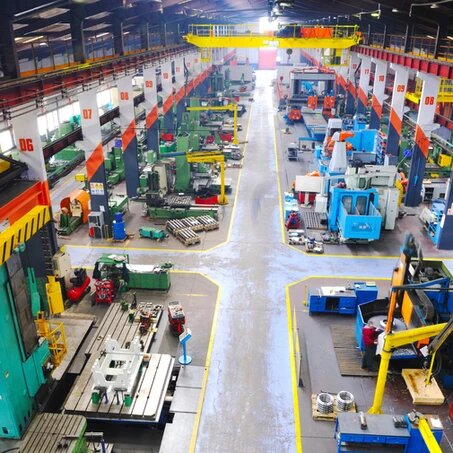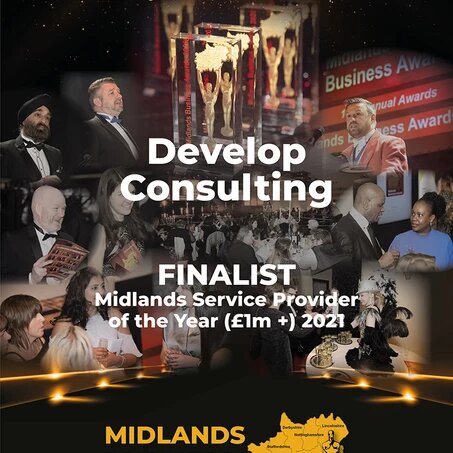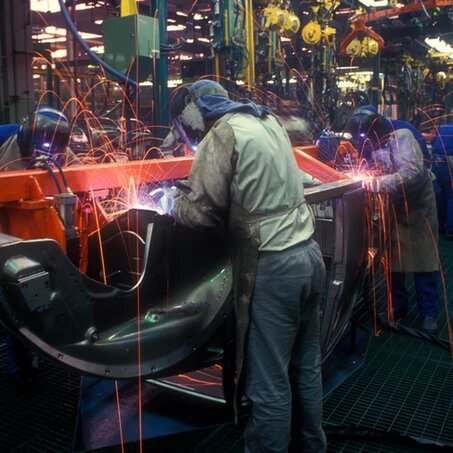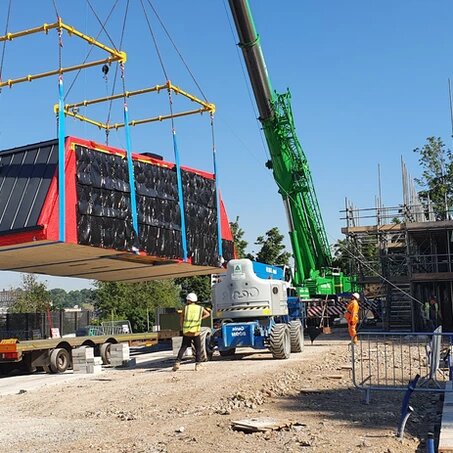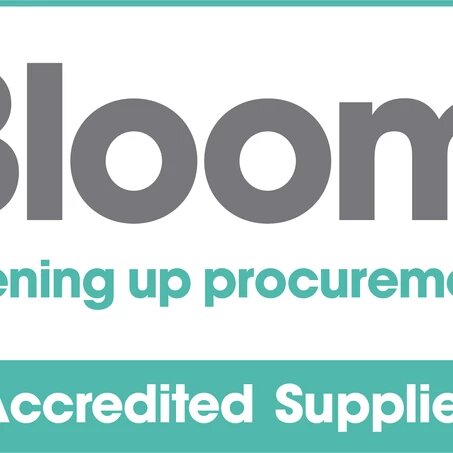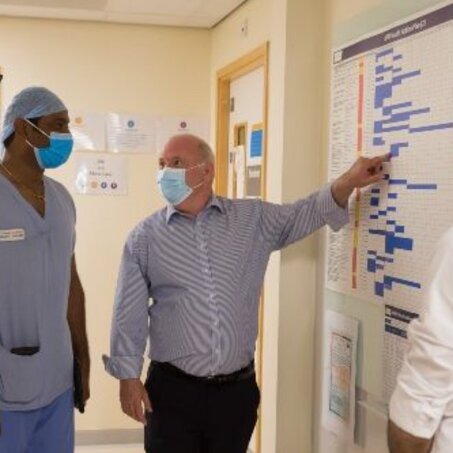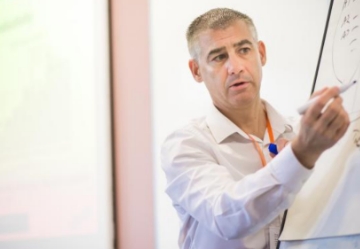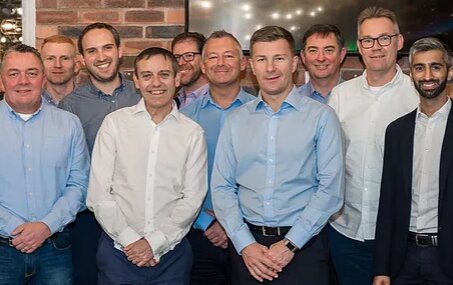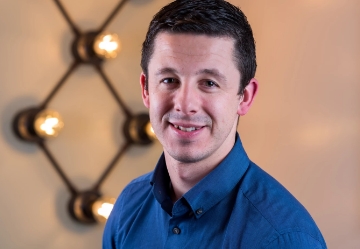To mark National Apprenticeship Week, we speak to one of our management consultants Matt Hilditch, who himself started as an apprentice, to talk about his career.
Five Minutes with…a former Apprentice

You began your career as an apprentice, tell us more about your experience.
I left school at the age of 16 to start a four-year technical apprenticeship with Rists Ltd., a subsidiary of Lucas Automotive, who produced electrical cable and wire harnesses for the UK automotive and aerospace markets. At the time, they were a very large employer in Staffordshire, and had a strong reputation for their apprenticeship scheme, taking on around 10-12 new apprentices each year.
The scheme started with a first year in the on-site apprentice training school where all the basic mechanical engineering and maintenance skills were taught, alongside a full day and at least one evening at the local technical college, where we studied a more technical specific curriculum – in my case electrical and electronic engineering. The second, third and fourth years of the scheme were spent on assignment in each of the different maintenance and engineering departments within the factory. So in my case I worked in the electrical and electronic maintenance teams, the project engineering office, the electrical test team, and so on. Alongside this, and throughout this, ran the “day-release” scheme at the technical college, where the objective was to achieve at least a HNC (Higher National Certificate) in Engineering.
What made you want to go down the apprenticeship route?
Whilst I was academically okay at high school, I never really enjoyed the daily grind of lessons in the classroom – I wanted to get out there and put the theories into practice! So I was quite sure that I didn’t want to spend another two years in the classroom doing A-levels, and then probably onto university after that. In parallel and from a young age, I was always interested in how things worked, often dismantling appliances and household devices to see what was inside. My father was an engineer for British Telecom, so he would also bring home tools and equipment that I would try to get my hands on, and eventually I came to realise that my interests really could be described as “Engineering”. So the best route I saw for me to get hands-on even more was to start my working career through an Engineering Technical Apprenticeship. At the time, there was a lot of competition to get a place on a good scheme with the best local employers, so I had to work hard to make sure I secured the grades and other skills I needed.
Whilst wanting to get on and learn in the workplace, the apprenticeship route also provided me the opportunity to continue to study and gain academic qualifications, but just along a different path than full-time college and university education. So for me, the balance was better. And in later career opportunities, not having a “classic” university degree has never been a problem, as I was able to present an alternative yet still successful CV to prospective employers.
Do you think it helped your knowledge throughout your career, having been ‘on the tools’ to start with?
Definitely. Learning how “work” works is a really important part of every young person’s education. So for me, I was able to start that part of my learning at an earlier age than some of my peers from school. The transition from education to work is massive, but an apprenticeship gives you the opportunity to be valued (and paid) for something that you are genuinely interested in, but still only learning about. That knowledge, and eventually skill, has allowed me throughout my career to be able to apply myself to all kinds of challenges and problems to solve, but with an extra perspective of having learnt “on the tools” and from the ground up. It’s hard to describe, but is an invaluable benefit.
How has it helped you now?
I often like to point to the TV programme, The Apprentice. The candidates all want to win and jump to the top, but we see most of them struggling to succeed in one or more seemingly simple tasks set by Lord Alan Sugar. So my personal take on this is to always try and learn, or at least understand the ‘basics’ of the task you are trying to accomplish, as this will usually give you a better foundation from which to succeed. An apprenticeship gives you the opportunity in a real workplace, to do just that, over an extended period of time as well. And that can become a “learning” skill that can be taken forward with you throughout your future career.
What would you say to anyone thinking about starting an apprenticeship?
Today, there are a much wider range of apprenticeships available than back in my day, including many choices in the balance and time spent between vocational and academic activities, which is fantastic. I would advise anyone considering an apprenticeship to do your research well. How long is the scheme? What entry requirements/grades are there? What will I learn? Who will teach me? What will I be expected to achieve? But ultimately what do I want to get out of it for myself, and what opportunities will it open up for me in the future. Search out and ask other ex-apprentices about their experience – I guarantee they will be willing to answer your questions.
To find out more about National Apprenticeship Week, which runs from 7-13th February, visit this link.









